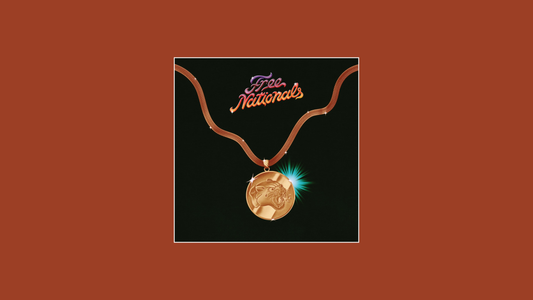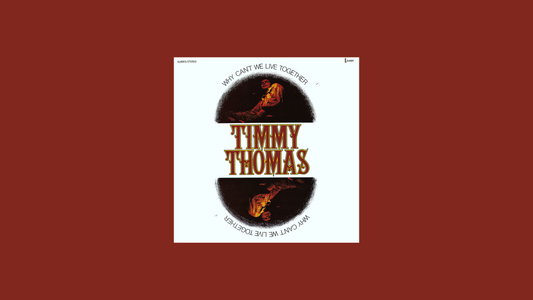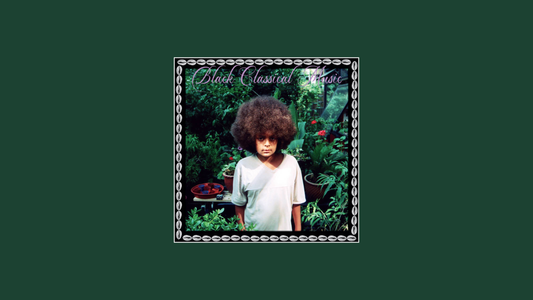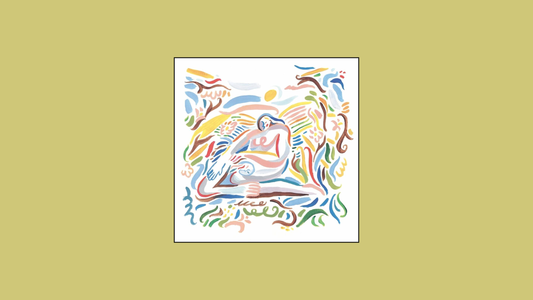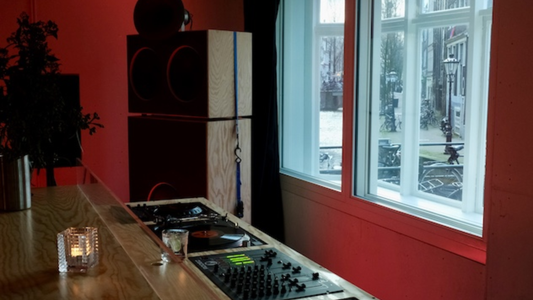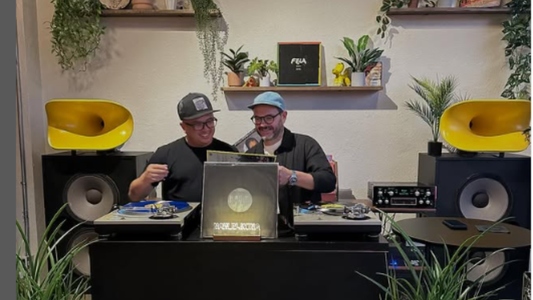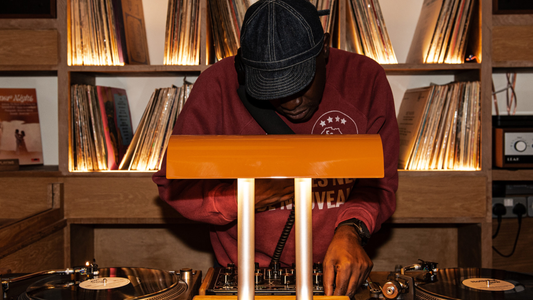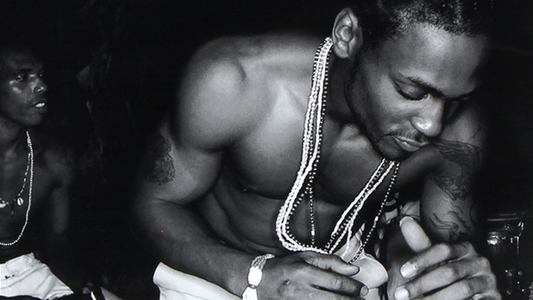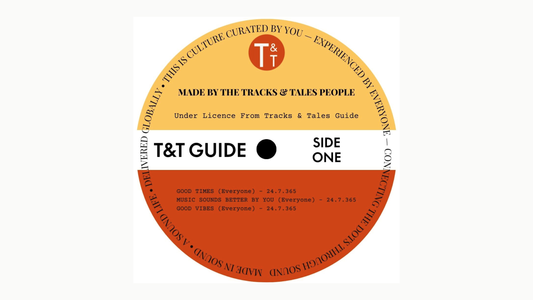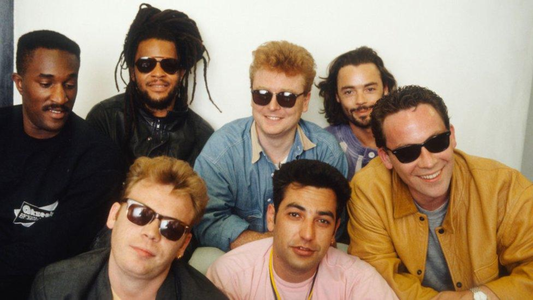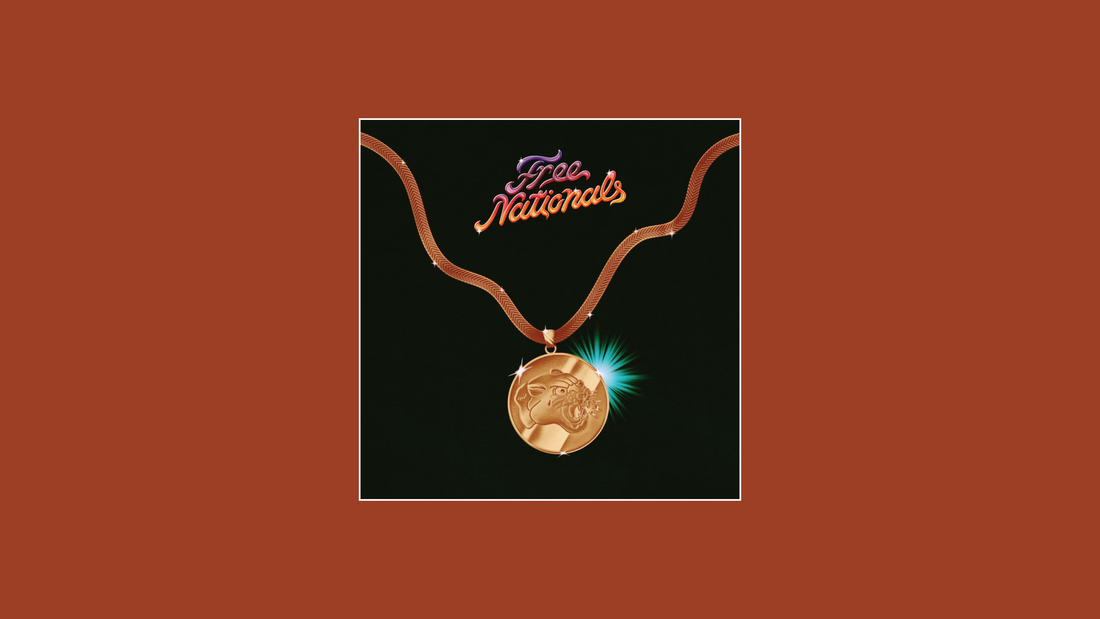
Free Nationals — Where the Groove Stays Human (2019)
A warm-blooded soul record for the streaming age.
By Rafi Mercer
It begins like sunlight through smoked glass — that first shimmering chord of “Obituaries.” The groove is steady, unhurried, almost human in its pulse. Free Nationals didn’t set out to reinvent the wheel; they simply wanted it to roll with warmth again. In a digital world of grid-perfect rhythm and clipped emotion, their self-titled album feels like a return to something tactile: the feel of skin on strings, the grit in a snare, the conversation between bass and breath. You sense it most in the spaces that breathe, the kind of sound you might find drifting across a turntable in a small room from the Los Angeles Listening Bars Guide.
The four-piece — José Ríos, Ron “T. Nava” Avant, Kelsey Gonzales and Callum Connor — were once the quiet engine behind Anderson .Paak’s rise. Night after night they built his live sound, a rare blend of bounce and soul that travelled like smoke through festivals and late-night sets. When they finally stepped forward under their own name, the question wasn’t whether they could play — it was whether they could capture that live electricity in the studio. Free Nationals (OBE / Empire, 2019) answers with groove and grace, moving through the same warm frequencies that shaped albums like D’Angelo — Voodoo and the delicate electronic soul of 4hero — Creating Patterns.
Listen closely to “Beauty & Essex” with Daniel Caesar and Unknown Mortal Orchestra: the bassline folds like velvet, the keys shimmer with quiet restraint, and Caesar’s voice drifts through it like perfume. Or “Time,” recorded before Mac Miller’s passing, where the band lay down a rhythm so gentle it almost disappears — a heartbeat in mourning clothes. Nothing here shouts. Everything listens. You can imagine it playing at Spiritland London, where conversation meets sound in perfect balance, the kind of place where the mix becomes a memory.
That’s the subtle art at work: restraint as rebellion. The Free Nationals belong to a lineage that prizes feel over flash — The Meters, Roy Ayers, D’Angelo’s Soulquarians — musicians who knew that space was a kind of seduction. In the streaming era, where attention is currency, this record refuses to hurry. Each track breathes. Each groove lingers just long enough to remind you that musicianship still matters, much like Timmy Thomas did with Why Can’t We Live Together, another quiet act of defiance that turns simplicity into soul.
What makes Free Nationals quietly radical is its optimism. The band threads a sense of unity through the record: the joy of playing together, the sound of trust. “On Sight” with JID and Kadhja Bonet swings between eras — future soul dressed in 1970s tailoring. “Gidget” dances in sunlight, while “Shibuya” shimmers with Pacific light. Every track holds an echo of their live lineage: sweat, laughter, precision, risk. The record sits perfectly in the listening-bar world — warmly mixed, beautifully compressed, low-end thick but never overbearing. Played on a fine system — say, a pair of Beolab 18s or a Kyoto listening bar rig — the bass feels conversational, the mids natural, the vocals right in front of you, not above. It’s an album made for slow attention, for needle and groove, for the quiet miracle of musicians in a room.
Perhaps that’s why it endures. Free Nationals isn’t nostalgia; it’s a reminder. In a time when most “bands” exist as code and stems, here’s a record that bleeds, breathes, and smiles. It proves that soul still belongs to the living, and that there are still albums made for deep listening on the Tracks & Tales Listening Shelf.
Rafi Mercer writes about the spaces where music matters. For more stories from Tracks & Tales, subscribe, or click here to read more.
